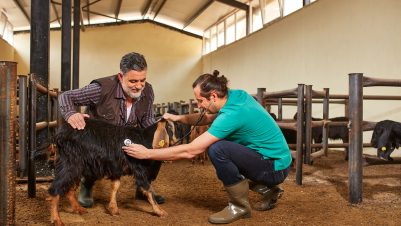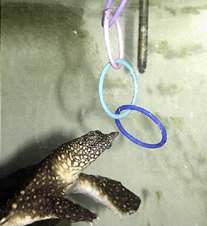“Crisis, what crisis?” At least the RCVS haven’t said that to us… yet. There isn’t much they or anyone in the veterinary world can do to improve our current circumstances.
Like many other professions and trades, and for most of the country, the “perfect storm” of Brexit, COVID-19 and post-COVID-19 catch-up has hit us. This is in addition to the recruitment crisis we went into the pandemic with. Add to that about 3 million extra pets to look after and, as you may have noticed, we are all a little bit busy and stressed right now.
I have driven past various garages, some closed, some rationing fuel and some selling petrol but no diesel. The RCVS and BVA have managed to get veterinary surgeons on the shortage occupation list. This is to be commended but is nothing compared to the dark arts of public relations that Malcolm Tucker from The Thick of It would be proud of, whereby the Road Hauliers Association realised that they needed a lot more drivers. They too wanted our European friends back in their employment and so managed to leak the “no need to panic but there may be a fuel shortage” story. A few days later they had scored 5,000 emergency work visas for EU drivers.
The snag here is that most of Europe is also short of HGV drivers, and the EU is not exactly swimming with spare vets either. Most of the major corporate groups have recruitment operations overseas. If successful these will bring more vets into the UK jobs market. So, whether you are part of such a group or not, you will benefit from a better supply of vets if they can get them.
Our employment crisis is plain to see. In my area, a small remote collection of market towns surrounded by sea and moorland, I can count four branch practices that have closed down and have heard of multiple resignations in various practices. If you ask a bit wider afield, there are stories of partners doing three out of four nights on call as they are either simply short staffed or their employees have stopped doing out of hours or refuse to do over a certain amount. These older vets are propping these practices up, but some are selling up and walking away leaving a skill and leadership vacuum. Or even worse, leaving entire practices to disappear.
There are stories of partners doing three out of four nights on call as they are either simply short staffed or their employees have stopped doing out of hours or refuse to do over a certain amount
Those in power are doing what they can, and stories from behind the scenes (I have my sources!) inform me that much work is indeed being done. But right here, right now, it is those of us on the front line who have to bear the brunt of it.
What can we do?
I am reminded of Shakespeare’s Henry V and his speech before the battle at the field of Agincourt. I am familiar with this partly from watching Kenneth Branagh’s version repeatedly on VHS many years ago, and partly from performing it on stage at university as part of a comedy routine. The speech is quite long and to save my memory, which was much depleted after fourth year exams and subsequent celebrations, I had taped a large print version of it to the posterior face of my sword. As I raised it high and began to ham it up good and proper, my eyes could easily follow the text and maintain line of sight to the full house with the anterior sword face towards the gathered throng.
Nights one and two went well but by night three my partner in the scene (now a well-known surgeon and MRCVS) had done what is known in the theatre as “a bit of business” and taped over the text. Luckily two nights of practice had helped me remember it and a slightly altered version was successfully delivered.
The reason I am relaying this anecdote is that the speech concerned the perspective of the few facing the many. It concerned those few that were there banding together and facing adversity: an offer was made to leave the field if anyone had no stomach for the fight – no one did. The few that were there remained. The speech did not concern Brexit but a certain flavour of dispute with our nearest neighbours was a noticeable parallel to these current times!
We are now in a similar situation: we are outnumbered and overwhelmed. Many colleagues have left and really it feels like there are too few of us left to have any hope of success. But we must.
Those of us that remain on the field must band together. We cannot complain and wait for help from those on high. They are doing what they can, but they are not on the field with us. Look your colleagues in the eye tomorrow and stand by them; don’t quit. This is not the time to jack it in and leave the rest of us even more depleted.
Help each other.
Every day do three tasks that are not for you – maybe do an extra consult for someone who is behind, clean a kennel for the flagging nurse or answer the phone for a tired receptionist. If we all do this for each other the burden will be lightened, and on the days when you have nothing left to give, someone will do something for you.
Every day do three tasks that are not for you – maybe do an extra consult for someone who is behind, clean a kennel for the flagging nurse or answer the phone for a tired receptionist. If we all do this for each other the burden will be lightened, and on the days when you have nothing left to give, someone will do something for you.
This period will pass and normality will return. We need to make sure that our veterinary practices survive the storm and are ready for the calmer times ahead. We are now down to a skeleton crew, so don’t abandon ship.
United we stand, divided we will fall.











